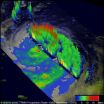Prejudice can cause depression at the societal, interpersonal, and intrapersonal levels
2012-09-19
(Press-News.org) Although depression and prejudice traditionally fall into different areas of study and treatment, a new article suggests that many cases of depression may be caused by prejudice from the self or from another person. In an article published in the September 2012 issue of Perspectives on Psychological Science, a journal of the Association for Psychological Science, William Cox of the University of Wisconsin-Madison and colleagues argue that prejudice and depression are fundamentally connected.
Consider the following sentence: "I really hate _____. I hate the way _____ look. I hate the way _____ talk."
What words belong in the blanks? It's possible that the statement expresses prejudice toward a stigmatized group: "I really hate Black people," "I hate the way gay men look," or "I hate the way Jews talk." But this statement actually comes from a depressed patient talking about herself: "I really hate me. I hate the way I look. I hate the way I talk."
The fact that the statement could have been completed in two equally plausible ways hints at a deep connection between prejudice and depression. Indeed, Cox and colleagues argue that the kinds of stereotypes about others that lead to prejudice and the kinds of schemas about the self that lead to depression are fundamentally similar. Among many features that they have in common, stereotypes of prejudice and schemas of depression are typically well-rehearsed, automatic, and difficult to change.
Cox and colleagues propose an integrated perspective of prejudice and depression, which holds that stereotypes are activated in a "source" who then expresses prejudice toward a "target," causing the target to become depressed.
This depression caused by prejudice – which the researchers call deprejudice — can occur at many levels. In the classic case, prejudice causes depression at the societal level (e.g., Nazis' prejudice causing Jews' depression), but this causal chain can also occur at the interpersonal level (e.g., an abuser's prejudice causing an abusee's depression), or even at the intrapersonal level, within a single person (e.g., a man's prejudice against himself causing his depression).
The researchers state that the focus of their theory is on cases of depression that are driven primarily by the negative thoughts that people have about themselves or that others have about them and does not address "depressions caused by neurochemical, genetic, or inflammatory processes." Understanding that many people with depression are not "just" depressed – they may have prejudice against themselves that causes their depression – has powerful theoretical implications for treatment.
Cox and colleagues propose that interventions developed and used by depression researchers – such as cognitive behavior therapy and mindfulness training – may be especially useful in combating prejudice. And some interventions developed and used by prejudice researchers may be especially useful in treating depression.
Using a wider lens to see the common processes associated with depression and prejudice will help psychological scientists and clinicians to understand these phenomena better and develop cross-disciplinary interventions that can target both problems.
###
For more information about this study, please contact: William T. L. Cox at will.cox@me.com.
Perspectives on Psychological Science is ranked among the top 10 general psychology journals for impact by the Institute for Scientific Information. It publishes an eclectic mix of thought-provoking articles on the latest important advances in psychology. For a copy of the article "Stereotypes, Prejudice, and Depression: The Integrated Perspective" and access to other Perspectives on Psychological Science research findings, please contact Anna Mikulak at 202-293-9300 or amikulak@psychologicalscience.org.
END
ELSE PRESS RELEASES FROM THIS DATE:
2012-09-19
While wave watching is a favorite pastime of beachgoers, few notice what is happening in the shallowest water. A closer look by two University of Colorado Boulder applied mathematicians has led to the discovery of interacting X- and Y-shaped ocean waves that may help explain why some tsunamis are able to wreak so much havoc.
Professor Mark Ablowitz and doctoral student Douglas Baldwin repeatedly observed such wave interactions in ankle-deep water at both Nuevo Vallarta, Mexico, and Venice Beach, Calif., in the Pacific Ocean -- interactions that were thought to be very ...
2012-09-19
ANN ARBOR, Mich. — A small subset of patients with open-angle glaucoma (OAG) account for a large proportion of all glaucoma-related charges in the United States, according to new data published by researchers at the University of Michigan Kellogg Eye Center and Washington University, St. Louis.
These findings have importance for future evaluations of the cost-effectiveness of screening and treatment for glaucoma.
"We've identified risk factors associated with patients who are the costliest recipients of glaucoma-related eye care," says Joshua D. Stein, M.D., M.S., ...
2012-09-19
Powerful thunderstorms wrapped tightly around Hurricane Lane's center as it continued moving through the eastern Pacific Ocean. When NASA's Terra satellite passed over Lane it captured a close-up view of the storm and noticed that Lane's eye had become cloud-filled as if being punched in the eye. Nature is expected to fight Lane more and win over the next couple of days.
The Moderate Resolution Imaging Spectroradiometer (MODIS) instrument captured a close-up of Lane on Sept. 17 at 3:25 p.m. EDT when it was still a hurricane. In the image, Lane's eye appeared obscured ...
2012-09-19
Heavy rainfall from Typhoon Sanba caused flooding, landslides and at least one death when it hit South Korea on Monday September 17, 2012. NASA's TRMM satellite captured rainfall and thunderstorm cloud height data as Sanba drenched southwestern Japan earlier, and its eye passed to the west of the Japanese island of Kyushu.
The Tropical Rainfall Measuring Mission (TRMM) satellite provided good coverage of Sanba as it passed over Typhoon Sanba on Sept. 16, 2012 at 0349 UTC, after Sanba had passed over Okinawa, Japan. Sanba was moving northward over the East China Sea toward ...
2012-09-19
BETHESDA, Md. (Sept. 18, 2012)—Diabetic nephropathy is one of the most serious complications related to diabetes, often leading to end-stage kidney disease. Purple corn grown in Peru and Chile is a relative of blue corn, which is readily available in the U.S. The maize is rich in anthocyanins (also known as flavonoids), which are reported to have anti-diabetic properties. Scientists from the Department of Food and Nutrition and Department of Biochemistry at Hallym University in Korea investigated the cellular and molecular activity of purple corn anthocyanins (PCA) to determine ...
2012-09-19
VIDEO:
This animation of satellite observations from Sept. 14-18, 2012, shows Tropical Storm Nadine in the central Atlantic. NASA's HS3 Mission Global Hawk investigated Nadine on Tropical Storm Nadine on Sept....
Click here for more information.
Tropical Storm Nadine is nearing the Azores and watches have gone up for the northwestern group of the islands. NOAA's GOES-13 satellite captured a visible image of Nadine as it continues moving northeast through the Atlantic.
On ...
2012-09-19
DURHAM, N.C. – Better adherence to the DASH (Dietary Approaches to Stop Hypertension) diet is associated with significant reductions in blood pressure. However, African-Americans may be less likely than whites to adopt the diet, according to researchers at Duke University Medical Center.
The findings, which appear online September 19 in the Journal of the Academy of Nutrition and Dietetics, suggest that altering traditional recipes to meet nutritional guidelines rather than eliminating certain foods altogether may result in better adherence among African-Americans.
The ...
2012-09-19
Philadelphia, PA, September 19, 2012 – The Dietary Approaches to Stop Hypertension (DASH) diet, which promotes consumption of more fruits, vegetables, low-fat dairy products, and whole grain, and less meats and sweets, is a proven effective treatment for hypertension. For some individuals, adherence to the diet can be just as effective in lowering blood pressure as taking antihypertensive medication. A new study has found that greater adherence to the diet can lead to significant reductions in blood pressure, but that African Americans are less likely to adopt the diet ...
2012-09-19
A new Cochrane Review concludes that all countries should consider establishing proper home birth services. They should also provide low-risk pregnant women with information enabling them to make an informed choice. The review has been prepared by senior researcher, statistician Ole Olsen, the Research Unit for General Practice, University of Copenhagen, and midwifery lecturer PhD Jette Aaroe Clausen.
In many countries it is believed that the safest option for all women is to give birth in hospital. However, observational studies of increasingly better quality and in ...
2012-09-19
Caller ID Spoofing has been around for years and SpoofTel, the World's Leader In Caller ID Spoofing, has been around for nearly as long. It's the longest running call display spoofing provider on the web. Not only does SpoofTel offer the same low prices it has since its inception, it also offers new users free trial calls. You can place a call from anywhere within Canada and the United States to anywhere within Canada and the United States completely free. If you've never tried caller ID spoofing before, or you are new to SpoofTel, now is your chance to try it for free.
Although ...
LAST 30 PRESS RELEASES:
[Press-News.org] Prejudice can cause depression at the societal, interpersonal, and intrapersonal levels



